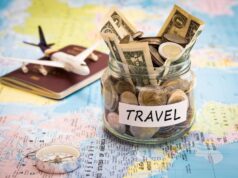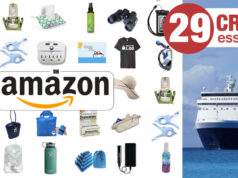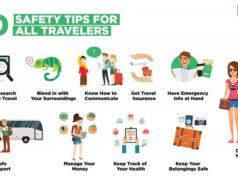In this article, we will help you calculate the ideal amount of cash to take with you for your international travel. We will discuss factors such as destination, duration of travel, and your personal spending habits to determine the right amount. By the end of the article, you will have a clear understanding of how to plan your cash needs when exploring the world. So, let’s get started! Many travelers find themselves asking this question before embarking on their journeys abroad. Determining the right amount of cash to carry with you can be a crucial aspect of your travel planning, ensuring that you have enough to cover daily expenses while also considering factors such as exchange rates, access to ATMs, and safety precautions. In this guide, we will discuss the factors to consider before traveling, how to determine your daily cash requirement, choosing the right currency, researching local currency exchange rates, safety measures for carrying cash, alternative payment options, managing cash while traveling, exchanging cash while abroad, and avoiding unnecessary fees and charges.
Factors to Consider Before Traveling
Before calculating the ideal amount of cash to take on your international trip, there are several factors that you should consider. Firstly, you need to determine your destination and the local currency of that country. Each country has its own currency, and it is important to have some of it on hand for daily expenses. Additionally, you should assess the length of your stay and the planned activities during your trip. If you’re staying for an extended period or participating in activities that require cash payments, you may need to carry more cash with you.
Another important factor to consider is the availability of ATMs and the acceptance of credit cards in your destination. Access to ATMs can be crucial in case you run out of cash or need to withdraw more, while the acceptance of credit cards can provide you with an alternative payment option. Researching these factors beforehand can help you make an informed decision about the amount of cash you need to carry.

This image is property of www.theprofessionalhobo.com.
Determining the Daily Cash Requirement
Once you have considered the aforementioned factors, it’s time to determine your daily cash requirement. To estimate your daily expenses, consider the cost of accommodation, meals, transportation, and any planned activities or attractions you intend to visit. Keep in mind that certain activities, such as shopping or dining in upscale restaurants, may require more cash. It is also recommended to include an emergency reserve in your calculations to account for unexpected situations or emergencies that may arise during your trip.
When calculating your daily cash requirement, it is important to consider the local currency of your destination. Exchange rates vary between currencies, and it is essential to keep track of them to ensure you are not overpaying or underestimating the value of your cash.
Choosing the Right Currency
Choosing the right currency for your international trip can greatly impact your overall travel experience. In most cases, it is advisable to use the local currency of the country you are visiting. Using local currency can help you avoid transaction fees and ensure that you are receiving the correct change when making purchases. Additionally, some establishments may not accept foreign currency or may offer unfavorable exchange rates if you choose to pay in a currency other than the local one.
However, there are situations where using the US Dollar as a default currency may be beneficial. For example, if you are traveling to a country with a volatile currency or high inflation rates, the US Dollar is often accepted by many establishments. In such cases, having some US Dollars on hand can be advantageous.
The decision to use the local currency or the US Dollar should be based on factors such as acceptance, exchange rates, and the stability of the local currency. It is advisable to research and understand the factors that may affect your currency choice before making a decision.
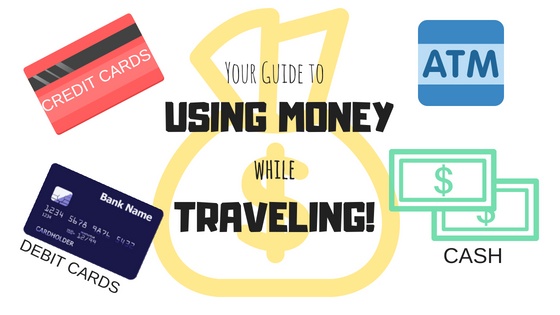
This image is property of www.theprofessionalhobo.com.
Researching Local Currency Exchange Rates
Researching local currency exchange rates is an essential step in calculating the ideal amount of cash for your international travel. You should start by checking the official exchange rates provided by banks or reputable financial institutions. These rates are usually published and can be accessed online or through currency exchange apps.
Comparing rates at different locations is another way to ensure that you get the best exchange rate possible. Exchange rates can vary between banks, currency exchange booths, and even hotels. It is advisable to compare rates and choose the location that offers the most favorable exchange rate for your cash.
In addition to understanding exchange rates, it is crucial to be aware of any fees associated with currency exchange. Some establishments may charge a commission or fee for their services, and these fees can significantly affect the value of your cash. Understanding these fees and choosing the place with the lowest fees can help you maximize the value of your exchanged cash.
Safety Measures for Carrying Cash
Carrying cash while traveling requires careful attention to safety measures. One of the most effective ways to protect your cash is by using a money belt or a hidden pouch. These accessories can be worn under your clothes and provide a safe and discreet place to store your cash. Avoid carrying large sums of cash in your wallet or bag, as it makes you a more visible target for pickpockets or thieves.
Distributing your cash in multiple locations is another safety measure that can be beneficial. Splitting your cash allows you to have backups in case you lose some or if one location becomes compromised. Consider keeping some cash in your accommodation’s safe or hidden in different bags or pockets.
It is also important to avoid flashy displays of wealth, such as ostentatious jewelry or large amounts of cash on display. These displays can attract unwanted attention and make you a target for theft. Maintaining a low profile and blending in with the local culture can help enhance your safety while traveling.
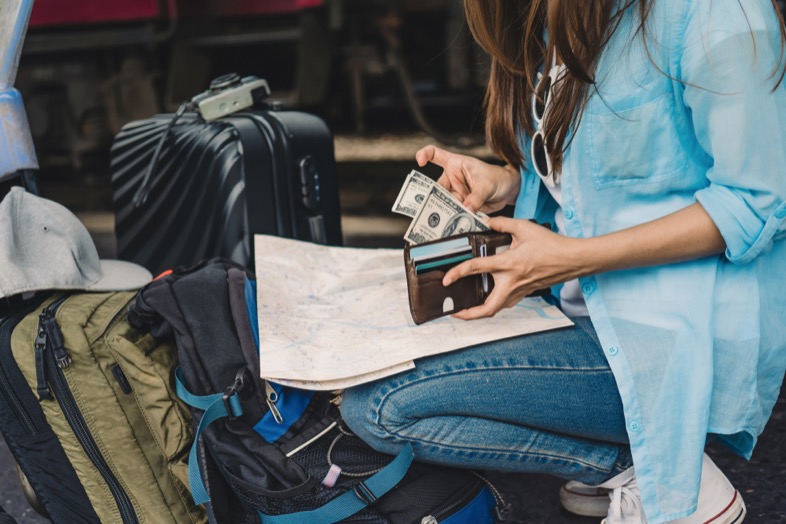
This image is property of d187qskirji7ti.cloudfront.net.
Alternative Payment Options
Using credit and debit cards, prepaid travel cards, and mobile payment apps can provide you with alternative payment options while traveling. Credit and debit cards can be used for larger purchases or emergencies, while prepaid travel cards allow you to load a specific amount of cash onto a card that can be used like a debit card. Mobile payment apps, such as Apple Pay or Google Pay, can also be convenient if they are widely accepted in your destination. These alternative payment options can reduce the amount of cash you need to carry with you and provide added security.
Traveler’s cheques can also be considered as an alternative payment option, although they are less commonly used today. Traveler’s cheques can be exchanged for cash at banks or currency exchange offices, providing you with a safer means of carrying money.
Managing Cash While Traveling
Proper management of cash while traveling is essential to ensure you have enough for daily expenses and emergencies. Avoid excessive cash withdrawals by estimating your daily expenses accurately and minimizing the number of withdrawals you need to make. This can help reduce transaction fees and limit the risk of losing or misplacing your cash.
Recording your expenses and tracking your spending is another important aspect of managing your cash. Keep a record of all your transactions, including receipts, so that you can monitor your expenses and identify any discrepancies. This will help you stay within your budget and make adjustments if necessary.
Securing your cash in your accommodation is also recommended. Utilize the safe provided by your hotel or hostel to store any excess cash that you don’t need to carry with you. This provides an added layer of protection against theft or misplacement.
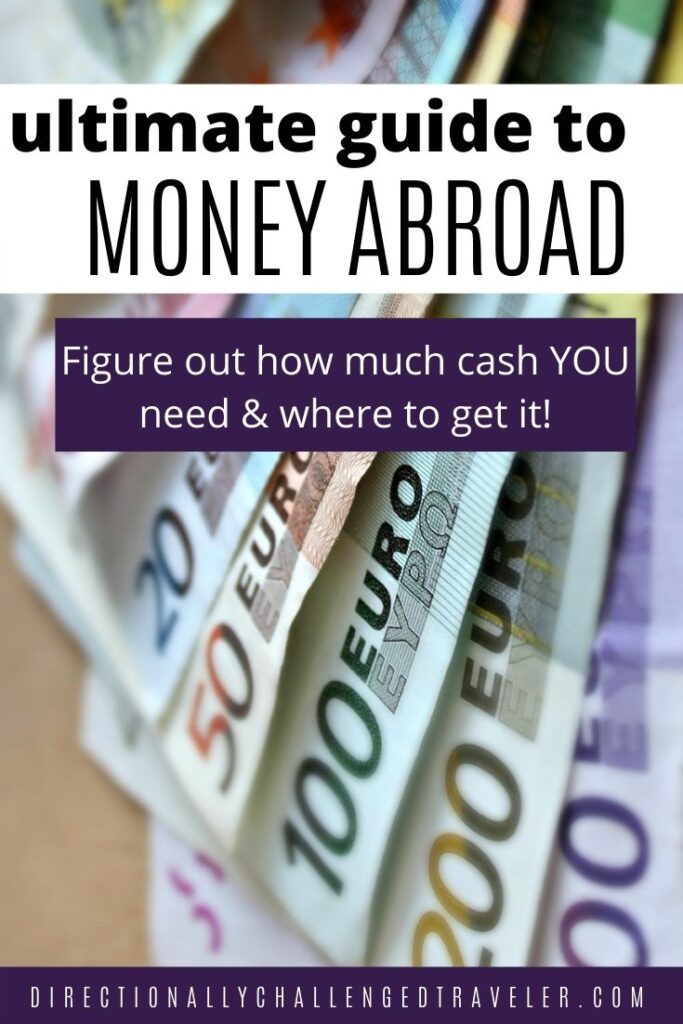
This image is property of directionallychallengedtraveler.com.
Exchanging Cash While Traveling
Exchanging cash while abroad should be done cautiously, and it is important to choose reliable exchange services. Banks are generally considered the most reliable option for currency exchange, as they usually offer competitive rates and adhere to regulatory standards. Exchange booths located in tourist areas may also be reputable, but it is essential to research and compare rates before making a decision.
Avoid using unofficial or black market exchanges, as they often offer unfavorable rates and carry a higher risk of fraudulent activities. These unauthorized services may seem tempting due to their advertised better rates, but the potential pitfalls outweigh the short-term gains.
Avoiding Unnecessary Fees and Charges
Understanding and avoiding unnecessary fees and charges is crucial in optimizing the value of your cash. It is essential to be aware of the fees associated with using ATMs and credit cards while traveling. Some banks charge fees for international ATM withdrawals, and credit card companies may impose foreign transaction fees. Contact your bank and credit card company before traveling to notify them of your plans and to inquire about any potential fees that may be imposed during international transactions.
Additionally, using credit cards that waive foreign transaction fees or opting for prepaid travel cards with low fees can help minimize costs. Keeping an eye on exchange rates and conducting transactions when the rates are favorable can also help you avoid unnecessary charges.
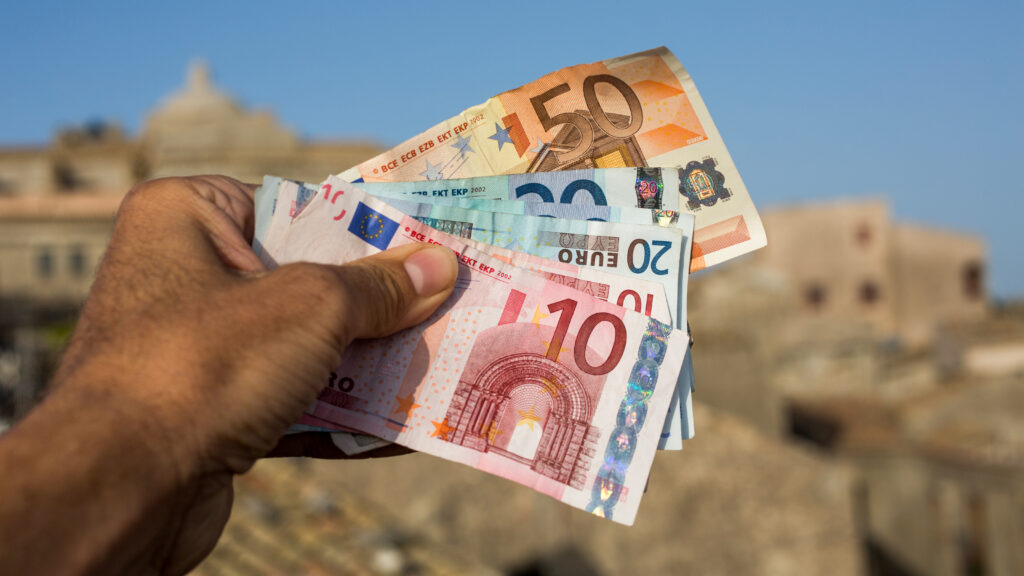
This image is property of d3dqioy2sca31t.cloudfront.net.
Conclusion
In conclusion, calculating the ideal amount of cash for international travel requires careful consideration of several factors. By assessing your destination, length of stay, planned activities, and access to ATMs and credit cards, you can estimate your daily cash requirement and choose the right currency for your trip. Researching local currency exchange rates and adopting safety measures for carrying cash can enhance your travel experience and protect your finances. Consider alternative payment options, manage your cash while traveling, exchange cash using reliable services, and avoid unnecessary fees and charges to achieve an ideal cash balance. By following the guidelines outlined in this guide and reevaluating your cash requirements during your trip, you can ensure a smooth and worry-free international travel experience. Happy travels!


